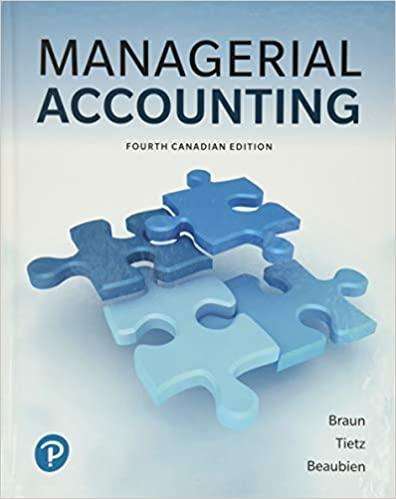Question
Becton Labs Inc. produces various chemical compounds for industrial use. One compound, called Fludex, is prepared by means of an elaborate distilling process. The company
Becton Labs Inc. produces various chemical compounds for industrial use. One compound, called Fludex, is prepared by means of an elaborate distilling process. The company has developed standard costs for one unit of Fludex, as follows:
| Direct materials | 2.60 | mL at | $ | $18 | per millilitre |
| Direct labour | 1.30 | hours at | $ | 21.00 | per hour |
| Variable overhead | 1.30 | hours at | $ | 11.00 | per hour |
During November, the following activity was recorded by the company relative to production of Fludex:
- Materials were purchased, 12,200 millilitres at a cost of $259,250.
- There was no beginning inventory of materials on hand to start the month; at the end of the month, 2,500 millilitres of material remained in the warehouse unused.
- The company employs 35 lab technicians to work on the production of Fludex. During November, each worked an average of 157 hours at an average rate of $13 per hour.
- Variable manufacturing overhead is assigned to Fludex on the basis of direct labour-hours. Variable manufacturing overhead costs during November totalled $18,200.
- Fixed overhead is also allocated on the basis of direct labour-hours. The company had budgeted $5,174 for the month but underapplied it by $248.
- During November, 3,730 good units of Fludex were produced. The normal volume for the month is 3,980 good units.
The companys management is anxious to determine the efficiency of the activities surrounding the production of Fludex. The companys policy is to investigate any variance more than 2% different from the relevant standard.
Step by Step Solution
There are 3 Steps involved in it
Step: 1

Get Instant Access to Expert-Tailored Solutions
See step-by-step solutions with expert insights and AI powered tools for academic success
Step: 2

Step: 3

Ace Your Homework with AI
Get the answers you need in no time with our AI-driven, step-by-step assistance
Get Started


